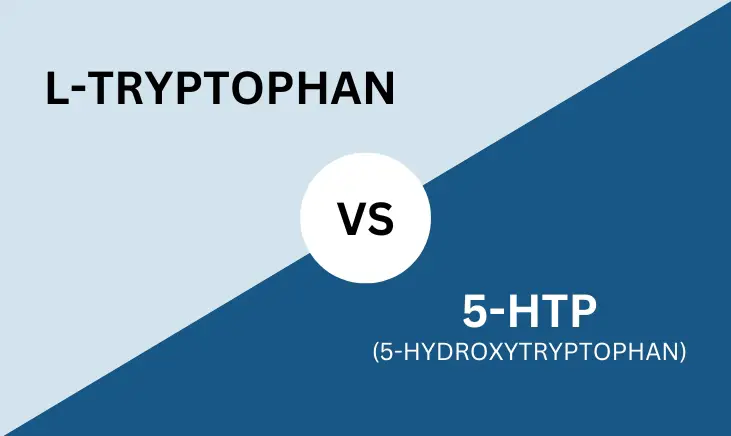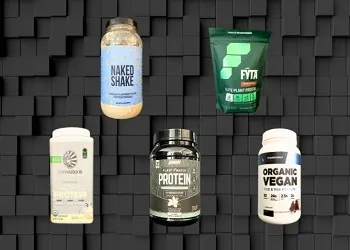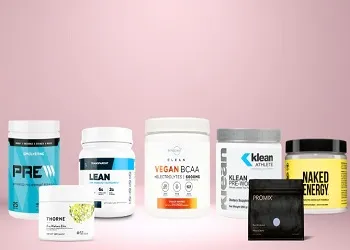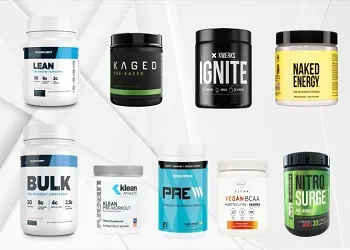Most of us have been there, desperate for sleep, late night googling different supplements and home remedies to encourage blissful shut-eye. Sleep is very important and in my opinion, often overlooked in the health and wellness world. Quality sleep is essential for muscle recovery, mental health, and longevity.
Generally, good nutrition, regular exercise, and stress management will promote healthy sleep patterns. However, some struggle more than others and may look to supplements to help with sleep.
In this article, we’ll compare L-tryptophan, 5-HTP, L-theanine, and melatonin and talk a bit about each.
Table of Contents
The TL;DR (too long; didn’t read)
- 5-HTP is a direct precursor to serotonin so it will play a larger role in regulating sleep and mood disorders compared to L-tryptophan.
- Tryptophan is an essential amino acid, which will provide a more well-rounded effect on health, but most people easily meet their daily tryptophan intake requirement through food.
- L-theanine, commonly found in green tea, is used as an adjunct therapy to some sleep supplements due to its relaxing and calming effects.
- Melatonin is primarily used to help regulate the sleep-wake cycle in people who struggle with sleep timing.
Sleep Is Important, End of Story
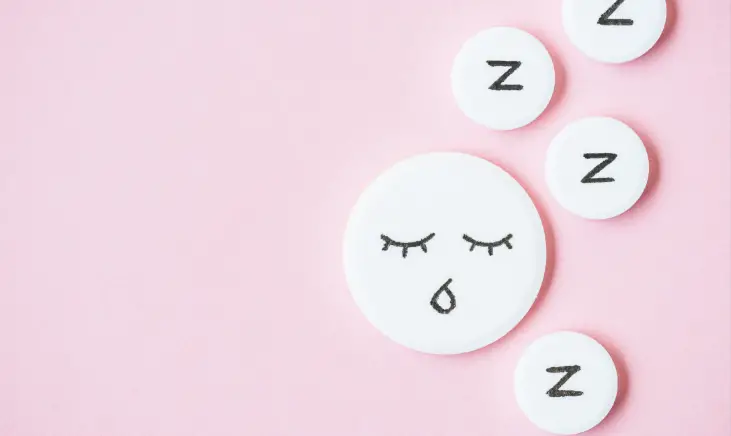
When it comes to sleep, both quantity and quality are vital for good health. Poor sleep quality or insufficient sleep can have detrimental effects on health, leading to issues like impaired cognitive function, mood disorders, weakened immune system, and increased risk of chronic diseases such as obesity, diabetes, and heart disease.
To mitigate these risks, many turn to supplements that promote restful sleep. These supplements, such as melatonin, magnesium, and certain herbal compounds, can help regulate the sleep-wake cycle, induce relaxation, and improve sleep quality.
However, it’s important to approach sleep aids with caution and ideally under medical guidance, as they are not a substitute for healthy sleep practices. Overall, prioritizing good sleep hygiene and understanding the complexity of sleep cycles are pivotal steps in maintaining overall health and well-being.
What Is L-Tryptophan?
L-tryptophan, sometimes just called tryptophan, is an amino acid with a couple of roles in the body. In general, amino acids are used to build and maintain several important bodily structures such as proteins, enzymes, muscles, and neurotransmitters.
Why Do We Need L-Tryptophan?
Tryptophan is an essential amino acid, meaning the body doesn’t produce L-tryptophan, so we must consume it through diet. The good news is many foods contain tryptophan, so tryptophan deficiency is rare and normally associated with undernutrition involving all amino acids.
How Does L-Tryptophan Work?
Importantly, tryptophan helps form:
- Serotonin: Serotonin is a neurotransmitter that regulates mood, appetite, sleep, sex drive, and more. Low serotonin is associated with mood disorders like depression and anxiety.
- Melatonin: Melatonin is a hormone that regulates our circadian rhythm, or the sleep-wake-cycle.
- Niacin (B3): Niacin is a B vitamin that has many roles from converting food into energy to repairing DNA.
Metabolic Pathway of Tryptophan
As mentioned above, tryptophan is involved in a lot of metabolic activity. The molecule has the option to take four main pathways:
- Hydroxylation (serotonin and melatonin) pathway
- Decarboxylation (tryptamine) pathway
- Transamination (indole pyruvic acid) pathway
- Oxidative (kynurenine) pathway (KP)
For the purpose of this article, we’ll be primarily concerned with the hydroxylation pathway, because that is how serotonin and melatonin are synthesized from tryptophan.
Tryptophan and Sleep
Since tryptophan is a serotonin precursor, it has been studied for its effects on sleep and mood. A systemic review and meta-analysis measuring the effect of tryptophan (Trp) supplementation on sleep concluded that Trp can significantly reduce the time spent awake after falling asleep, particularly in doses of 1 gram or more.
Tryptophan and Mood
Some research shows that manipulating tryptophan levels, either through depletion or supplementation, can alter serotonin levels in the brain and body. This has helped establish serotonin’s importance in higher brain functions and its association with memory and mood disorders when levels are low.
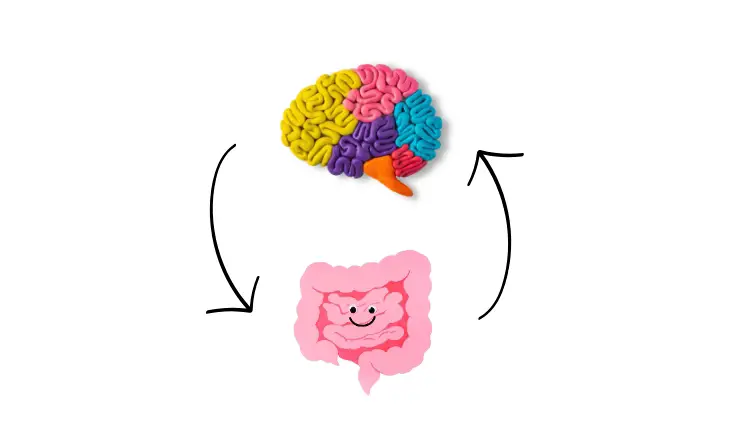
This research, amongst many other gut health studies, indicates a potential link between gut health and central nervous system disorders. The gut-brain axis, a two-way connection between the brain and the gastrointestinal system, suggests that gut microbiota might influence behavior and cognitive functions.
Depression and Anxiety
In this study, results show that participants had significantly more positive mood scores after consuming the high tryptophan diet compared to the low tryptophan diet. However, there were no significant differences in negative mood between the two diets. Additionally, a higher intake of dietary tryptophan was linked to reduced symptoms of depression and anxiety.
Tryptophan Supplements
Tryptophan supplements aren’t necessary for most people. However, essential amino acid (EAA) supplements and many protein powders will contain tryptophan and other amino acids to some extent since it is an EAA used for protein synthesis.
| Mild Side Effects | Serious Side Effects |
| Nausea, constipation, dry mouth, blurred vision, drowsiness, and decreased libido | Cases of serious serotonin syndrome have been reported when MAOIs are combined with L-tryptophan |
What is 5-HTP?
5-hydroxytryptophan is a derivative of L-tryptophan and is converted into serotonin–one of the “happy hormones” in the brain. Therefore, we get 5-HTP when we consume tryptophan-rich foods.
How Does 5-HTP Work?
Tryptophan enters the body through diet, and some of it is converted into 5-HTP. The molecule is then shuttled to the brain where it’s converted into serotonin. As mentioned above, serotonin is an important neurotransmitter responsible for regulating mood, sleep, anxiety, pain, and appetite.
5-HTP and Sleep
Serotonin is then used to make melatonin by the pineal gland. Melatonin is frequently used in supplement form to enhance or encourage sleep.
5-HTP and Depression
Depression is much more complex than just low serotonin levels. However, due to its close relationship with serotonin, 5-HTP is of interest for treating mood disorders like depression, but more research is needed to confirm this relationship.
5-HTP and Body Composition
There is even some preliminary research regarding the effect of 5-HTP on body composition which may be due to its effect on satiety.
5-HTP Supplements
Though we naturally receive 5-HTP from a steady intake of L-tryptophan through diet,
5-HTP can be manufactured commercially from the seed of an African plant. 5-HTP supplements will interact with some other drugs and supplements, so be sure to run this by your doctor if you plan on taking 5-HTP.
| Mild Side Effects | Serious Side Effects |
| Heartburn, stomach pain, nausea, vomiting, diarrhea, drowsiness, sexual problems, and muscle problems | Severe stomach problems and muscle spasms (typically from larger doses) |
L-Tryptophan Vs 5-HTP
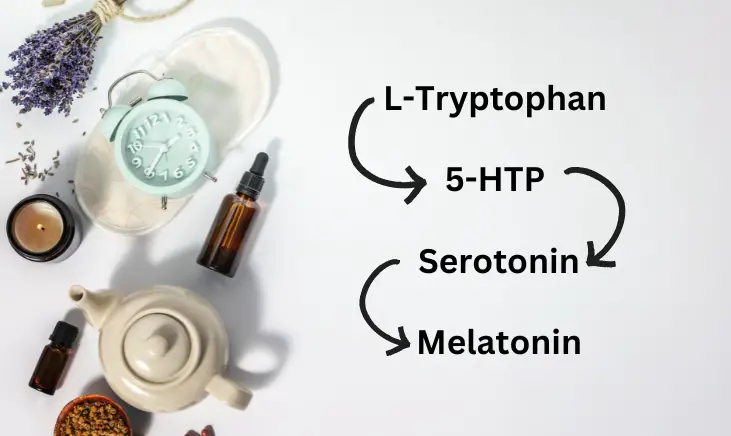
Tryptophan is found naturally in food, whereas 5-HTP is only found in supplement form.
5-HTP may be a more efficient pathway to increasing serotonin, but since it is an amino acid, tryptophan offers a broader array of benefits.
Can I Take L-Tryptophan and 5-HTP Together?
It’s not recommended to take these two supplements together since they both increase serotonin. However, supplementing with 5-HTP has shown promising results when used by itself and in conjunction with other pharmaceuticals for mood disorders. You should always speak to a doctor or medical professional before starting a new supplement to ensure there are no negative interactions between something you may already be taking.
L-Tryptophan Vs L-Theanine

L-theanine is an amino acid, but it isn’t used to build proteins. The most common dietary source of L-theanine is tea. It is often used to counteract caffeine’s negative side effects by adding a calming effect. Levels of L-theanine in tea vary by brand, but it is highest in green teas.
This study examined how L-theanine (200 mg/day), along with other supplements, affected sleep problems. The study found that all tested supplements significantly improved sleep problems. However, the authors noted that life habits and sleep conditions before supplementation influenced the effectiveness of these supplements. The study highlights the potential for personalizing sleep-support supplementation based on individual life habits, sleep conditions, and specific sleep problems.
Other uses for L-theanine may include ADHD treatment in children and cognitive support in older adults.
L-theanine plays a role in sleep quality, but L-tryptophan is more frequently researched for its effects on sleep.
L-Tryptophan Vs Melatonin
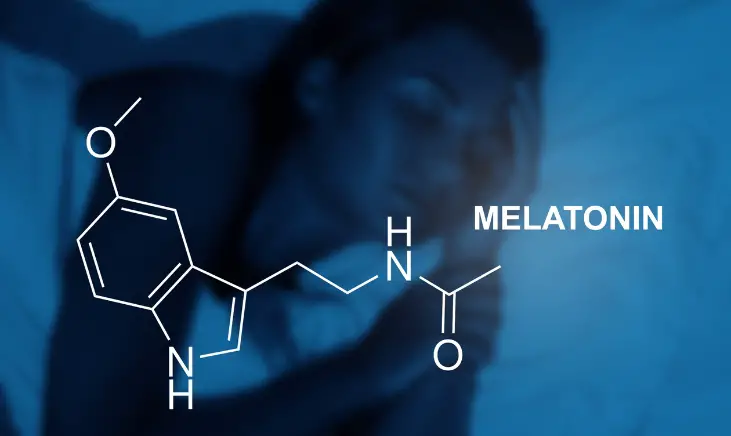
While L-tryptophan indirectly contributes to the production of melatonin, taking melatonin supplements directly influences melatonin levels in the body, often leading to quicker results in improving sleep patterns.
L-tryptophan’s effects are more gradual, as it requires conversion into serotonin and then melatonin. This difference in action is crucial when considering their use as sleep aids.
Tryptophan is typically used to help with sleep initiation, mood regulation, and overall relaxation, whereas melatonin is more directly involved in regulating the timing of sleep and aligning the circadian rhythm.
Considerations When Choosing a Supplement
When considering the use of sleep supplements, several critical factors must be taken into account.
- Individual health conditions play a significant role in determining the appropriateness and safety of any supplement. Different health statuses can affect how the body responds to supplements, making it essential to consider any existing conditions.
- The potential for interactions with medications cannot be overlooked. Sleep supplements may interfere with or amplify the effects of certain medications, necessitating careful consideration and knowledge of any possible interactions.
- Lifestyle factors, including diet, exercise, and stress levels, also influence the effectiveness of sleep supplements.
In light of these factors, it is of paramount importance to consult with healthcare providers before beginning any supplement regimen. Healthcare professionals can provide personalized advice and ensure that the use of any supplement is safe and appropriate for an individual’s specific health situation.
Additionally, they can offer guidelines on the responsible use of sleep supplements, ensuring that users understand the correct dosages, potential side effects, and the importance of not relying solely on supplements for sleep improvement.
Final Thoughts
The quest for better sleep and overall health often leads us to explore various supplements, with L-tryptophan and 5-HTP standing out for their unique roles. L-tryptophan, an essential amino acid, is crucial for the production of serotonin, melatonin, and niacin, thereby influencing mood, sleep, and metabolic health. Its natural occurrence in many foods makes deficiency rare, highlighting its accessibility for health enhancement.
On the other hand, 5-HTP, a derivative of L-tryptophan, directly contributes to serotonin production, playing a pivotal role in regulating mood and sleep disorders.
While both supplements show promise, 5-HTP’s direct pathway to serotonin may offer a more targeted approach for those struggling with mood and sleep issues. It’s important to note that supplements aren’t a one-size-fits-all solution and their effectiveness can vary based on individual health conditions, medication interactions, and lifestyle choices.
FAQs
Is tryptophan or 5-HTP better?
It depends on what you are hoping to gain through supplementation as they play different roles in the body. However, for its effects on mental health and sleep, 5-HTP is preferred because it is a direct precursor to serotonin and is able to cross the blood-brain barrier.
Does 5-HTP deplete dopamine?
A concern of long-term 5-HTP use is the depletion of catecholamines including dopamine, epinephrine, and norepinephrine.
Is the combination of tryptophan and 5-HTP useful?
This may be useful for someone who wants to take a lower dose of 5-HTP but still receives similar benefits. Since they do the same thing in the end, they may work synergistically. However, too much serotonin can have dangerous effects, so always follow the dosing guidelines or speak with your healthcare provider before testing out this theory.
How much tryptophan is necessary to sleep better?
Studies have shown that one gram of tryptophan before bed may help with mild insomnia.
